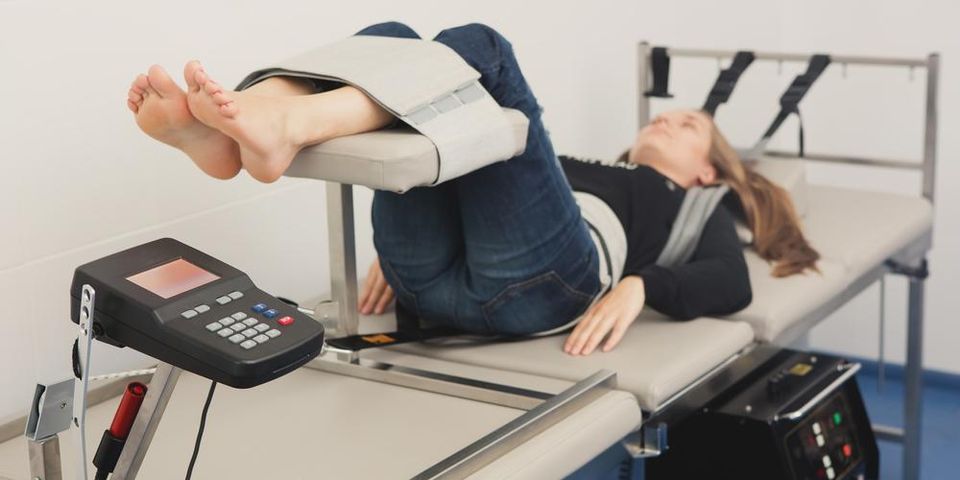Common Questions Abut Spinal Decompression Therapy

When you experience long-term back or neck pain, it can leave you stressed, fatigued, irritable, and unable to concentrate on anything but the pain itself. There are several methods that may provide relief, including pharmaceuticals and surgery. However, some patients feel the risks accompanying those are too great and seek other methods. For instance, many have found pain relief through nonsurgical spinal decompression. If you’re unfamiliar with this process, here are the answers to some of the most frequently asked questions on the subject.
An Introduction to Spinal Decompression Therapy
What is spinal decompression?
It’s a technique used by many chiropractors to gently stretch and elongate the spine. Decompression takes pressure off the discs (the membranous pads between spinal bones) and eliminates the pinching of nerves. This offers considerable pain relief to many patients.
What can it treat?
 Practitioners have used it successfully to treat back pain, neck pain, and sciatica (pain, weakness, or tingling in the leg due to interference with the sciatic nerve). It has also been used to treat pain caused by bulging, degenerated, or herniated discs, worn spinal joints, and nerve root injuries.
Practitioners have used it successfully to treat back pain, neck pain, and sciatica (pain, weakness, or tingling in the leg due to interference with the sciatic nerve). It has also been used to treat pain caused by bulging, degenerated, or herniated discs, worn spinal joints, and nerve root injuries.
How's the procedure performed?
Patients remain fully dressed and lie down on a mechanized decompression table, which features either a cable-and-pulley system or two halves that can separate. The chiropractor straps the patient down and uses a computer to guide the cable/pulleys or table halves. This provides a customized level of stretching force for every patient—just enough to decompress the spine, relieve pressure on the discs, and allow them to return to their appropriate shape.
Is it safe?
It’s very safe. Many tables feature sensors that can tell whether a patient is resisting the stretch and will reduce pressure until the muscles relax. However, the procedure is contraindicated for some patients. For instance, pregnant women and those with a spinal tumor or fracture should not have spinal decompression. It’s also not recommended if you have advanced osteoporosis, an aortic aneurysm, a failed back surgery, artificial discs, or metal spinal implants.
To learn more about spinal decompression, contact O'Fallon Pain Relief Associates in St. Charles County, MO. The practice offers chiropractic care, pain management, physical therapy, and pain medication to those suffering back pain, neck pain, or bulging discs. Learn more about the company and their methods at their website or call (636) 978-3000 to make an appointment today.
About the Business
Have a question? Ask the experts!
Send your question

